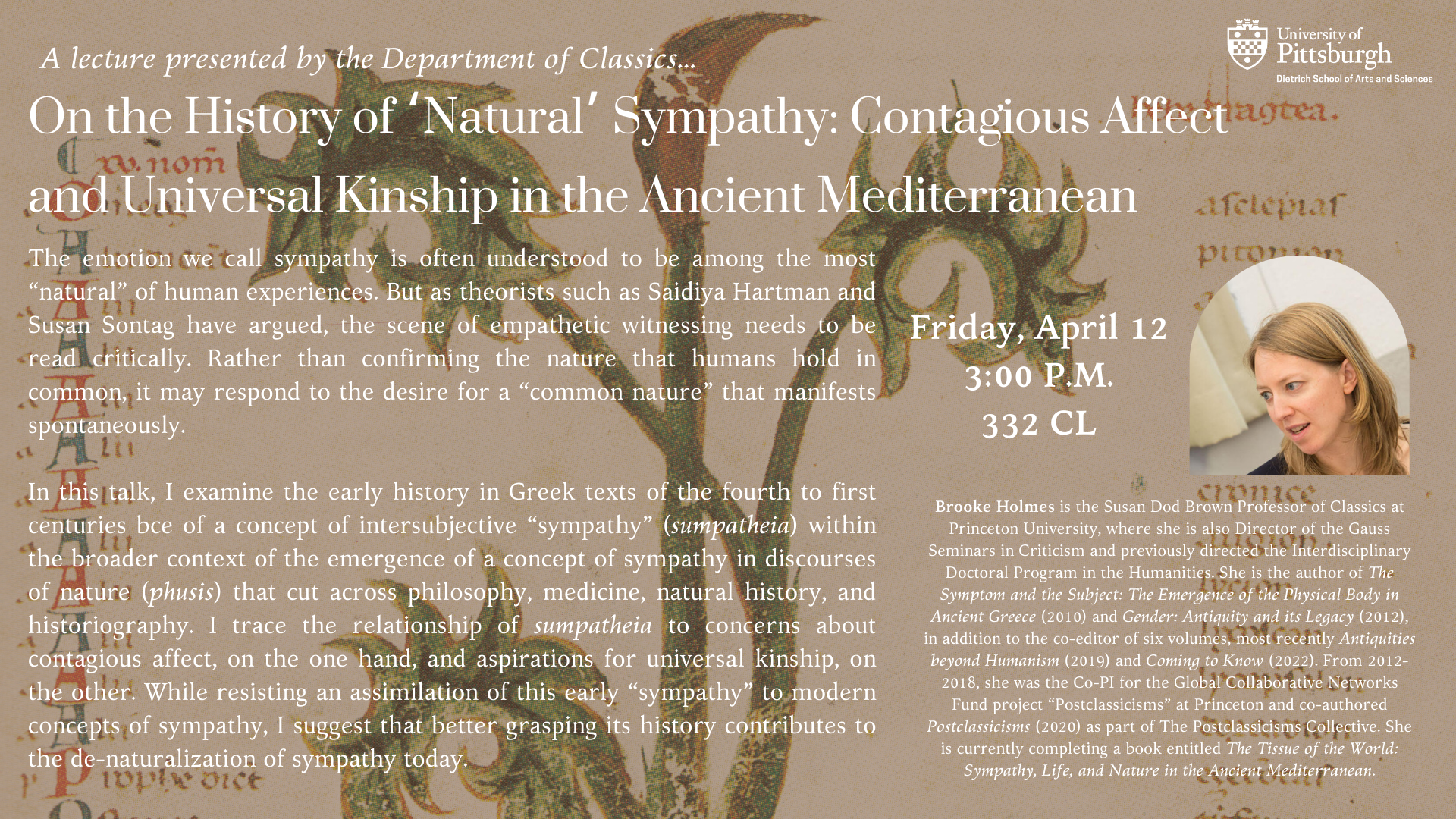Event Summary

The Department warmly invites guests to attend a lecture entitled "On the History of ‘Natural’ Sympathy: Contagious Affect and Universal Kinship in the Ancient Mediterranean" by Brooke Holmes (Princeton), the Susan Dod Brown Professsor of Classics and Director of the Gauss Seminars in Criticism.
Her expertise encompasses ancient Greek medicine and life science, ancient philosophy, Greek literature—especially Homer and tragedy—Lucretius, reception studies, literary theory, medical humanities and bioethics, environmental humanities, gender and sexuality studies, and twentieth-century French philosophy.
Abstract: The emotion we call sympathy is often understood to be among the most “natural” of human experiences. But as theorists such as Saidiya Hartman and Susan Sontag have argued, the scene of empathetic witnessing needs to be read critically. Rather than confirming the nature that humans hold in common, it may respond to the desire for a "common nature" that manifests spontaneously. In this talk, I examine the early history in Greek texts of the fourth to first centuries bce of a concept of intersubjective “sympathy” (sumpatheia) within the broader context of the emergence of a concept of sympathy in discourses of nature (phusis) that cut across philosophy, medicine, natural history, and historiography. I trace the relationship of sumpatheia to concerns about contagious affect, on the one hand, and aspirations for universal kinship, on the other. While resisting an assimilation of this early “sympathy” to modern concepts of sympathy, I suggest that better grasping its history contributes to the de-naturalization of sympathy today.
Location and Address
332 Cathedral of Learning
